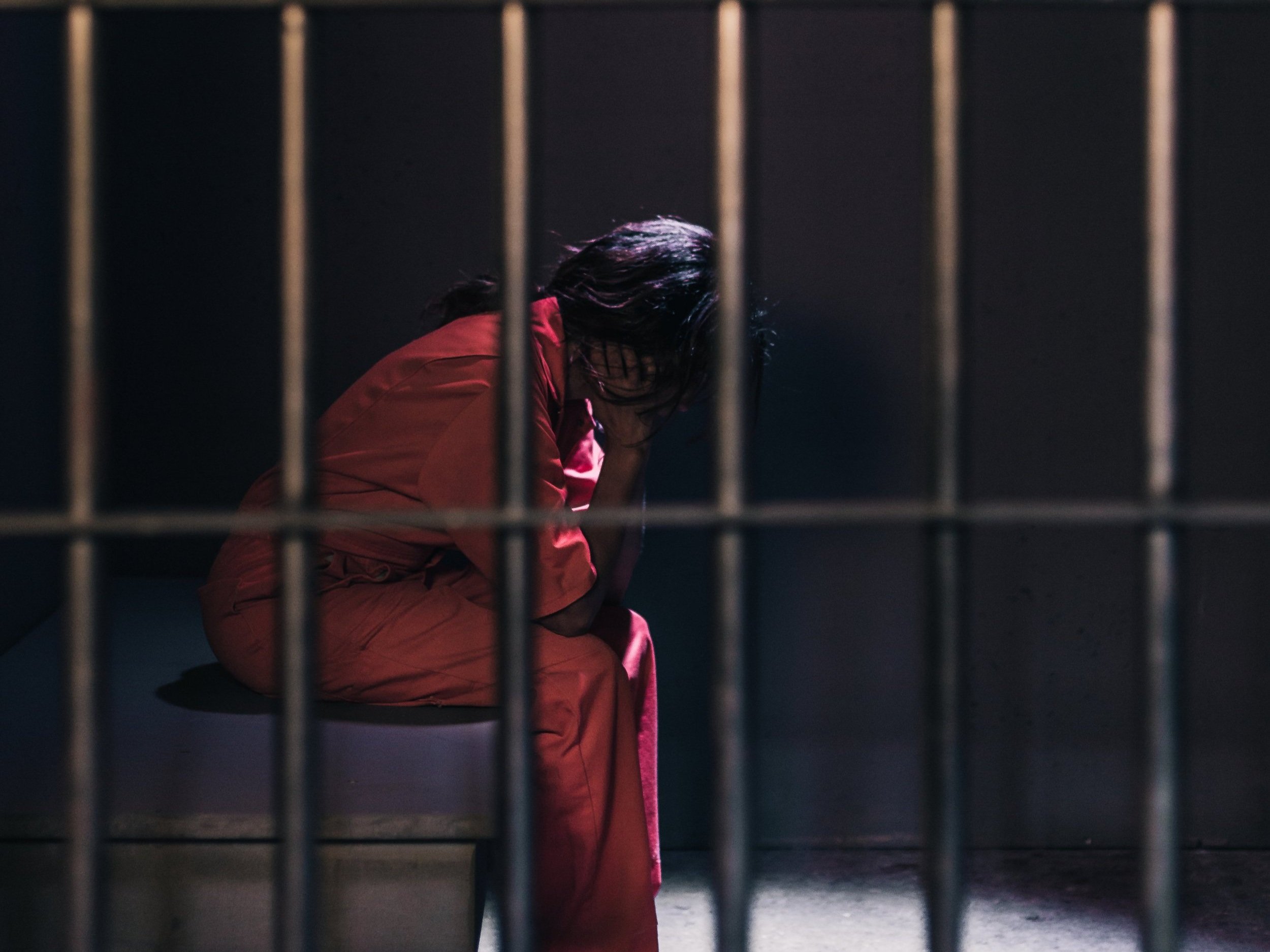
Our Blog
Categories
- AI Law
- Africa
- African Union
- Central Africa
- Citizenship laws
- Climate Change
- Competion Law
- Constitutional Court
- Constitutional Law
- Constitutional law
- Disability Rights
- Disability rights
- East Africa
- Environmental Law
- Gender Equality
- Governance
- Human Rights
- Immigration Laws
- International Law
- Kenya
- Labour Law
- Mining Law
- Nigeria
- North Africa
- Political Rights
- Public International Law
- Public Law
- Right to Vote
- SADC Region
- South Africa
- Southern Africa
- Uganda
- West Africa
- Year end anthology
- Zambia
Prisons in Africa – a death sentence for women’s rights
Women in African prisons endure abuse, violence, endemic overcrowding, inadequate food, and poor hygiene and sanitation. Sohela Surajpal examines this problem and argues that a feminist movement committed to protecting and empowering the most marginalised among us must look to alternative visions of safety and justice that a divestment from carceral politics might offer us.
Gender Inequality: The Vulnerabilities of Women under the Asylum System
South Africa’s 1998 Refugees Act fails to reflect the country’s constitutional commitment to equality in as far as it entrenches the unequal treatment of women. Shortcomings in refugee protection lead to the treatment of refugee women as minors and smother their autonomous voice in the refugee application process.
Les changements anticonstitutionnels de gouvernement: mode ou contre mode ?
Survenant par la force des armes ou à travers une subtile modification de la constitution, ne conservant qu’une apparence de légalité, ce phénomène est récurrent sur le continent noir et génère de lourdes menaces pour la démocratie et l'état de droit. La fréquence des changements inconstitutionnels ces dernières années nous amène à nous demander s’ils ne se sont pas érigés en une nouvelle mode d’ascension au pouvoir.
Two Rights can make a Wrong: Judges’ Rights to Freedom of Expression and Religion
The right to freedom of conscience, religion, thought, belief, and opinion is guaranteed by the Constitution of the Republic of South Africa, 1996, yet judicial officers have found themselves in predicaments where their religious beliefs led to their judicial propriety being questioned.
The defence and security policy in the Congolese Constitution of 18 February 2006: what about the incumbent?
The unchanging centrality of the state rests on defense and security. These matters should escape the weaknesses of constitutional elasticity. One of the essential functions of the Constitution is to produce stability and durability in the legal framework within which political actors operate.
La politique de défense et de sécurité dans la Constitution congolaise du 18 février 2006 : quid du titulaire ?
La centralité immuable de l’État repose sur la défense et la sécurité. Ces questions devraient échapper aux faiblesses de la plasticité constitutionnelle. L’une des fonctions essentielles de la Constitution est de produire la stabilité et la durabilité du cadre juridique dans lequel les acteurs politiques évoluent.
Mandatory Vaccination against Covid-19: Implications for the South African Workplace
Covid-19’s potentially devastating impact motivated unrivalled global efforts to develop vaccines, which the World Health Organization (WHO) identified as the most effective protection against the disease. Although largely viewed positively, there has been notable mistrust and hesitancy due to concerns about health-related risks associated with Covid-19 vaccines. This has raised questions in the employment context as some employers have quickly moved towards making vaccines mandatory.
Acts of State and Judicial Independence in Cameroon
The recent appointment of Raymond Zondo as the new Chief Justice of South Africa’s Constitutional Court generated much debate centred on his qualifications, experience and suitability. Against this background, it is opportune to review the selection procedure of superior court judges, particularly in the African context.
Lasting Solutions to Corruption Lie in Effective and Accountable Institutions
When it comes to assessing the legacy of the Zondo Commission in South Africa, what might success look like?
The Poisoned Chalice of a Judge-Led Inquiry into State Capture
Commissions of inquiry have featured strongly in democratic South Africa, and many have been tasked with a truth-seeking mandate in relation to issues with profound political significance.
Fundamental Rights and the Legal Obligations of Business
In “Fundamental Rights and the Legal Obligations of Business”, David Bilchitz considers how to improve the global framework surrounding corporate obligations to ensure greater guidance on the content of these obligations as well as better decision-making both within corporations and national institutions. ALM caught up with Prof Bilchitz to ask him more about his new book.
Women’s Political Participation in The Gambia: Gender Quotas as Fast Track to Equality
A snapshot of women’s political participation in The Gambia shows that there is an urgent need to adopt special measures to increase women’s access to political participation.
“Re-Invigorating Ubuntu Through Water” by Ndjodi Ndeunyema
In “Re-Invigorating Ubuntu Through Water”, Ndjodi Ndeunyema argues for the existence of a court enforceable human right to water that is implied from the right to life in Article 6 of the Namibian Constitution.
The Real Colour of Water: A Review of Ndeunyema’s “Re-Invigorating Ubuntu Through Water”
Ndjodi Ndeunyema’s book “Re-Invigorating Ubuntu Through Water” is the lawyer’s version of the aphorism that “water is life”.
- Africa
- BBI judgment
- Children's rights
- Climate Change
- Constitutional Law
- Constitutional reform
- Democracy
- Election series
- Elections
- Environmental Justice
- Equality
- Human Rights
- International Law
- Judicial independence
- Kenya
- LGBTQ+ Rights
- Migrants
- Migration
- Namibia
- Nigeria
- Political Rights
- Public participation
- Refugee and migration series
- Refugees
- South Africa
- South African Constitution
- Women in Africa
- Women's Month
- Women's rights
- World Congress
Submissions
We welcome unsolicited submissions covering current legal developments in constitutional law, fundamental rights law, public law, international law and related fields.
















